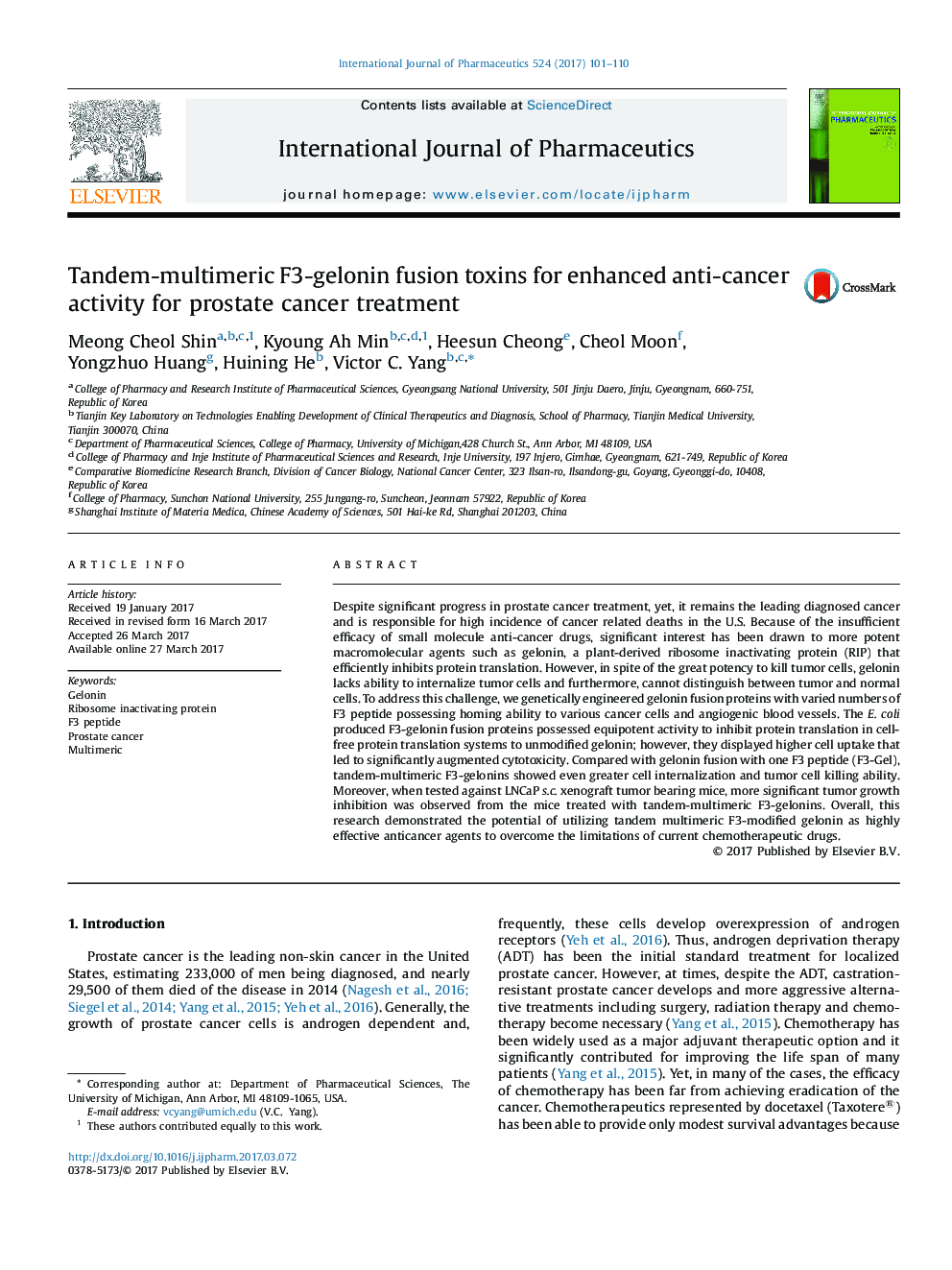| Article ID | Journal | Published Year | Pages | File Type |
|---|---|---|---|---|
| 5550467 | International Journal of Pharmaceutics | 2017 | 10 Pages |
Despite significant progress in prostate cancer treatment, yet, it remains the leading diagnosed cancer and is responsible for high incidence of cancer related deaths in the U.S. Because of the insufficient efficacy of small molecule anti-cancer drugs, significant interest has been drawn to more potent macromolecular agents such as gelonin, a plant-derived ribosome inactivating protein (RIP) that efficiently inhibits protein translation. However, in spite of the great potency to kill tumor cells, gelonin lacks ability to internalize tumor cells and furthermore, cannot distinguish between tumor and normal cells. To address this challenge, we genetically engineered gelonin fusion proteins with varied numbers of F3 peptide possessing homing ability to various cancer cells and angiogenic blood vessels. The E. coli produced F3-gelonin fusion proteins possessed equipotent activity to inhibit protein translation in cell-free protein translation systems to unmodified gelonin; however, they displayed higher cell uptake that led to significantly augmented cytotoxicity. Compared with gelonin fusion with one F3 peptide (F3-Gel), tandem-multimeric F3-gelonins showed even greater cell internalization and tumor cell killing ability. Moreover, when tested against LNCaP s.c. xenograft tumor bearing mice, more significant tumor growth inhibition was observed from the mice treated with tandem-multimeric F3-gelonins. Overall, this research demonstrated the potential of utilizing tandem multimeric F3-modified gelonin as highly effective anticancer agents to overcome the limitations of current chemotherapeutic drugs.
Graphical abstractDownload high-res image (105KB)Download full-size image
